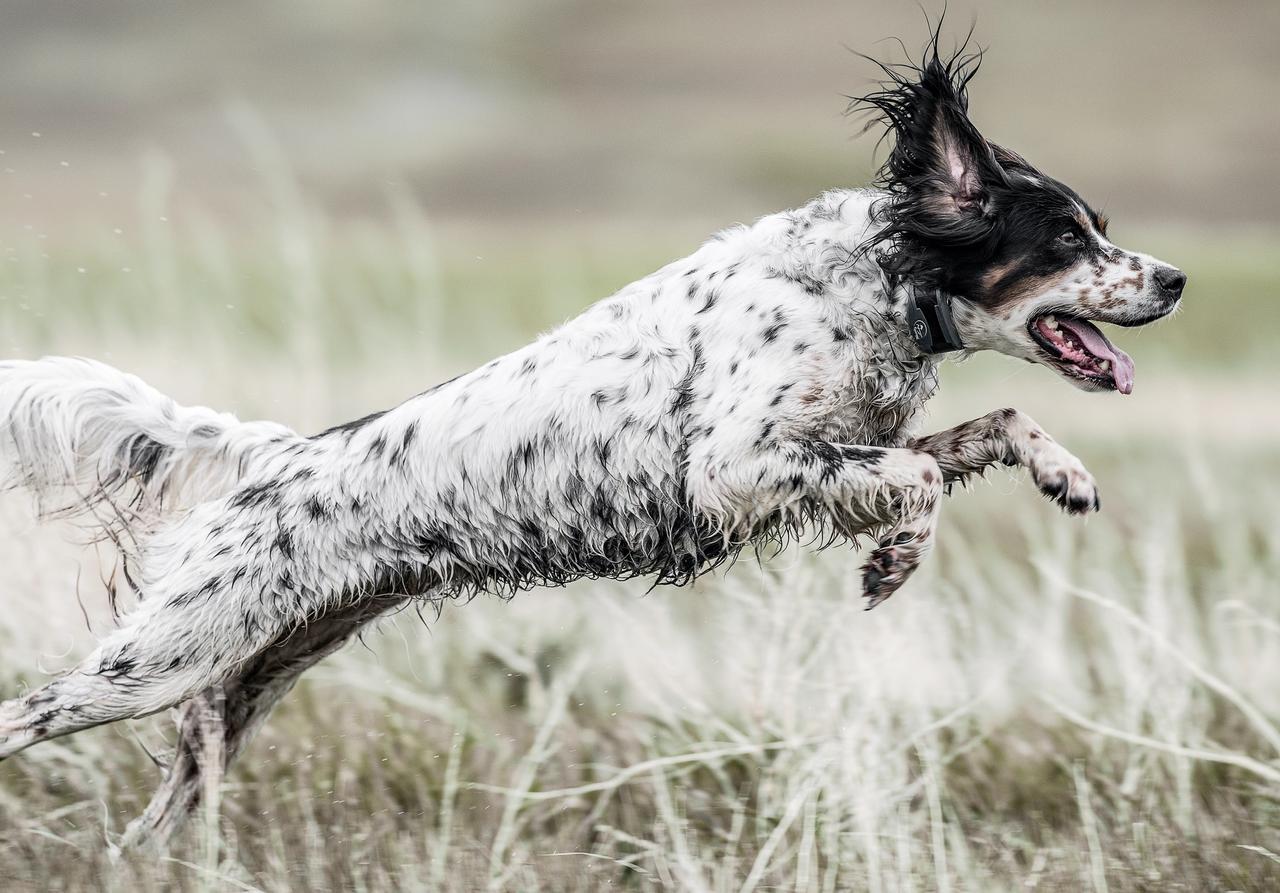
Understanding Hunting Dog Ear Infections
Posted by The SportDOG StaffMost hunting dog breeds have flop ears. This drooping ear flap contributes to a high incidence of ear infections because it decreases air circulation and traps bacteria, fungi and debris in the ear. The flop ear also makes it slightly more difficult for the owner to see ear problems promptly.
Contributing to the incidence of ear infections in our dogs is the secretion of ear wax, call cerumen. This material, along with moisture, offers a great place for germs to grow. Ear infections are often secondary to other conditions like allergies, skin infections and external parasites.
The classic early sign of ear problems is head shaking. Owners might notice this during barking as the vibration tickles the ear and causes head shaking early on. Other signs are foul odor from the ear, holding the head in a tilting manner and pain around the ear area. Any of these signs warrant a look into the ear.
If ear infections and head shaking are ignored, eventually the small blood vessels in the ear flap (called the “pinna”) can rupture. This results in a soft, fluctuant swelling the flap called a “hematoma of the ear.” This condition often requires surgery, which can be avoided by prompt attention to ear infections.
Ear mites are a common parasite found in hunting dog ears. Typically, a brown, waxy discharge is noted and the veterinarian can actually see the mites crawling on a swab of this material. Treatment of ear mites is straightforward and several products are available to treat ear mite infestation.
Fungal infections can be caused by a common organism, Malassezia pachydermatitis. Again, your veterinarian can readily diagnose this infection and there are several medications that treat this condition. Malassezia does not thrive in a low-pH environment so your veterinarian may offer an ear product that lowers the pH of the ear canal.
Several bacteria can cause ear infections. The key here is that different germs resond to different topical or systemic antibiotics. As a result, your veterinarian will often want to culture the germ and do a sensitivity test to see what antibiotic will actually work on that specific germ. This test may take a day or two to complete, but it is well worth the wait because it gets your dog on the correct antibiotic promptly.
And then there are allergies. Because the ear canal is essentially lined with skin, dogs with skin allergies often have serious ear inflammations. Your veterinarian will work on the skin allergy aggressively and the ear problems will decrease as a result. Often, medicating the ear canal with topical anti-inflammatory medications will be required long-term.
Your veterinarian can recommend steps to help prevent ear infections. These may include routine flushing with drying agents, lowering the pH of the ear canal and regular cleaning. Obviously, each of us needs to be aware of ear infections and be alert for head shaking and other signs of ear problems to allow quick attention and prevent serious, performance-hindering conditions that can result from neglecting the situation too long.
Always check your local and state regulations related to dog training and the use of game birds on private and public property.
Related Articles
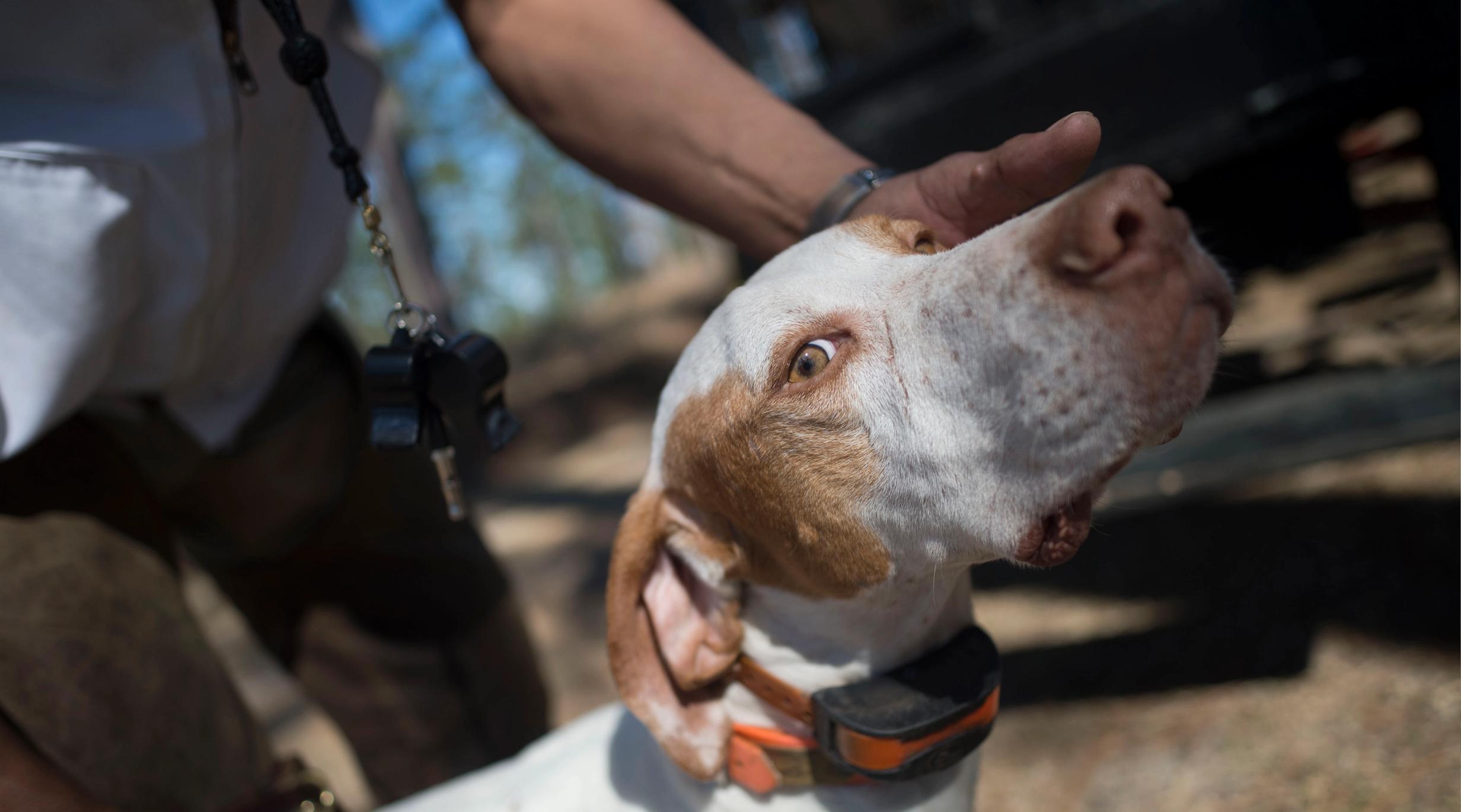
Dealing with Hunting Dog Injuries
by The SportDOG Staff
Cuts are common in hunting dogs. Briars, barbed-wire, broken glass, or even sharp broken saplings can slice a dog’s skin as it hunts. Appropriate field care of wounds can decrease healing time and make the veterinarian’s job much easier. Remember the watchwords: flush, fill and wrap. Flushing Fresh cuts may look quite...
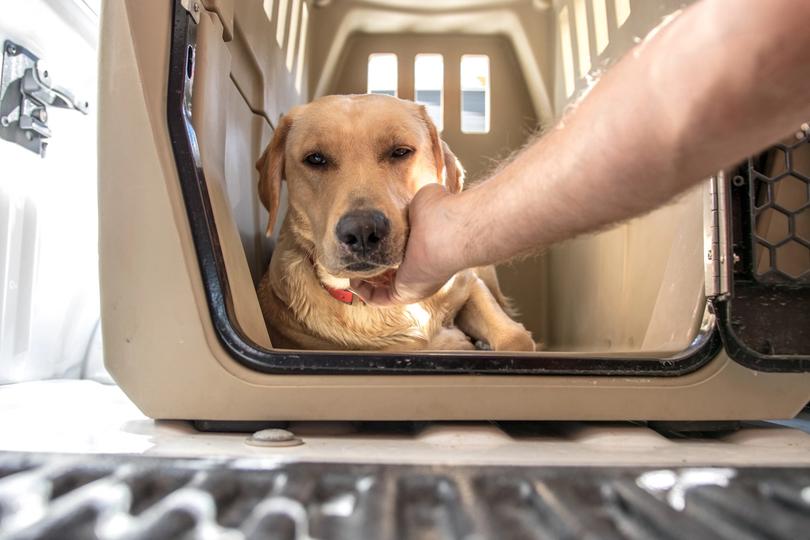
Understanding Canine Influenza
by The SportDOG Staff
If you have been watching the news lately or reading metropolitan newspapers, you may have noticed articles about a “new” flu outbreak in dogs. In some sections of the country, veterinarians are reporting a near-panic situation around this canine flu news. Here are the facts. Canine Influenza Virus is a relatively...
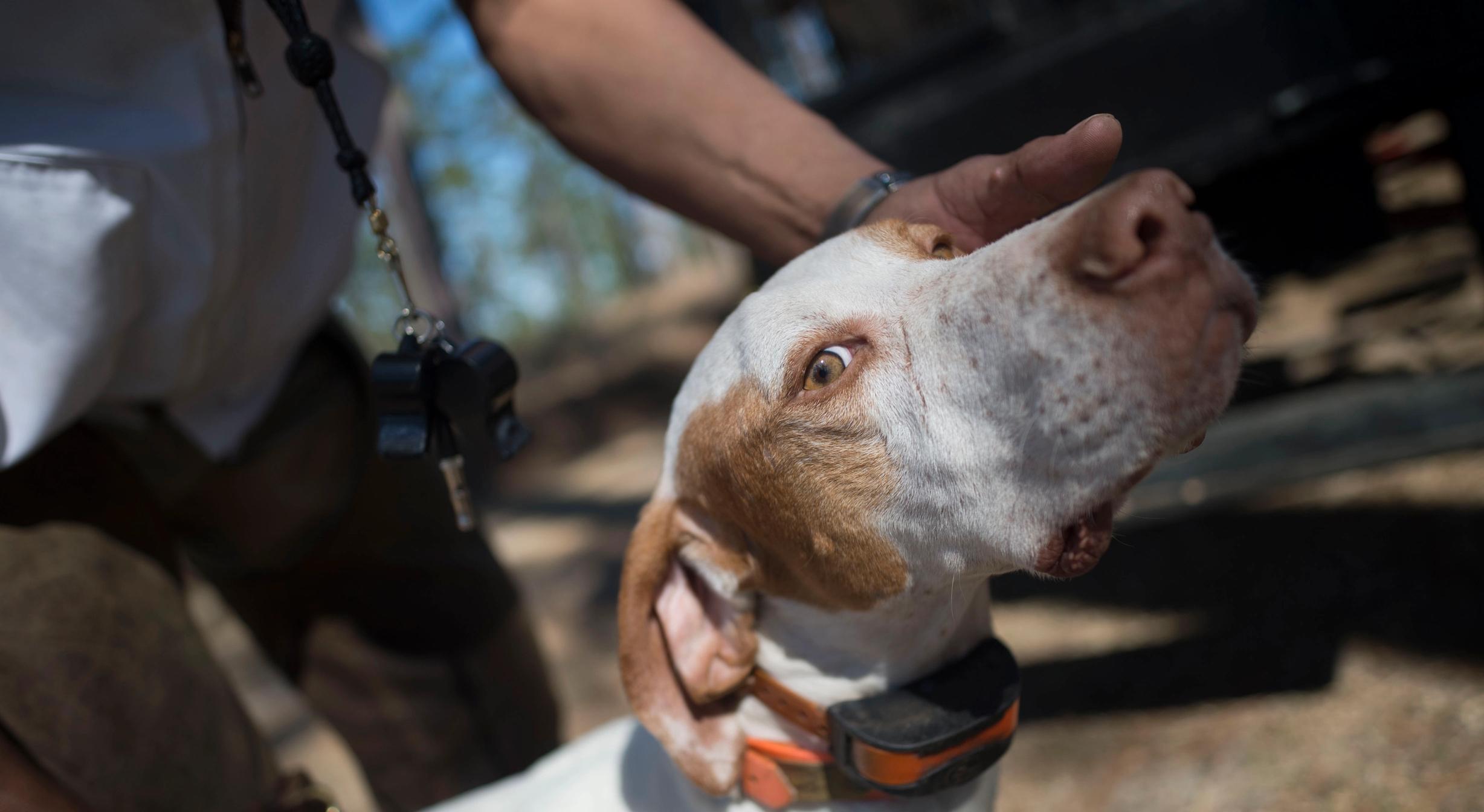
Quick Gun Dog Eye Exam - Video
by The SportDOG Staff
In this SportDOG Training Tip, (originally aired on Pheasants Forever Television) Dr. Joe Spoo, DVM discusses quick ways to examine the overall health of your hunting dog. This tailgate exam can help your gun dog avoid serious injury later. Checking your dog for symptoms or problems is an important part...
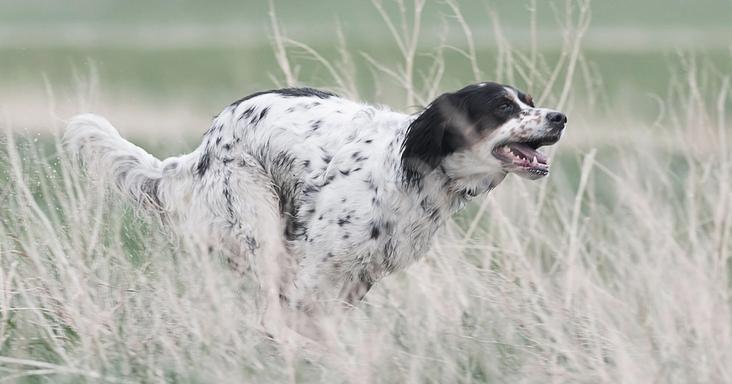
Building a First Aid Kit
by The SportDOG Staff
My background is a bit different than many of the dog handlers on the SportDOG® ProStaff. I’m a tactical paramedic. I work with law enforcement and service dogs. In fact, I’ve never hunted with dogs. However, I’ve trained explosive-detection canines, and I specialize in cadaver dogs. Today, I teach canine...
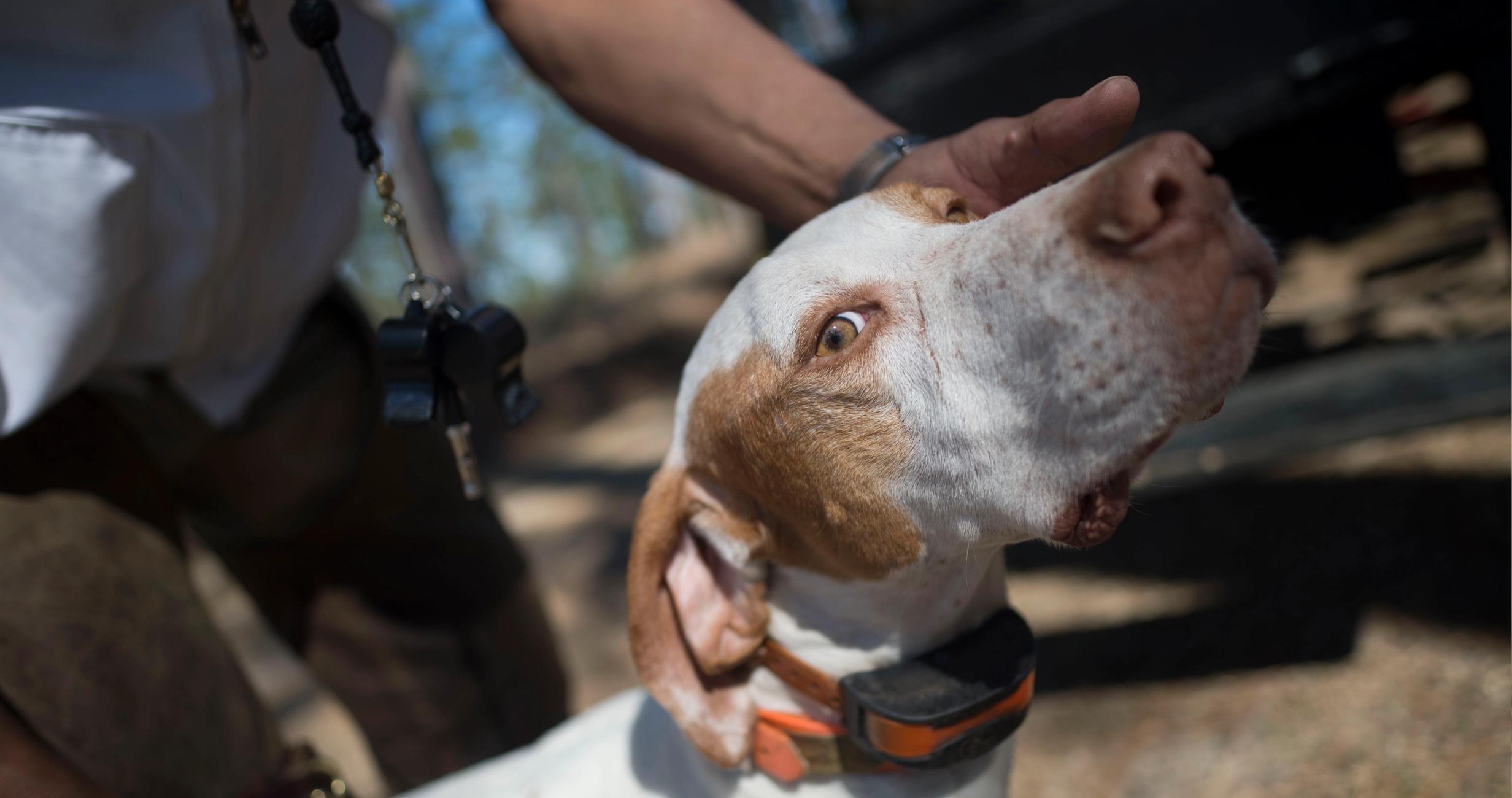
First Aid for Your Hunting Dog - Video
by The SportDOG Staff
In this SportDOG Brand Training Tip (originally aired on Pheasants Forever Television) Dr. Joe Spoo,DVM explains the correct way to provide first aid care for your hunting dog while in the field. Emergency care for your gun dog in the field can prevent long term dog problems from developing.
